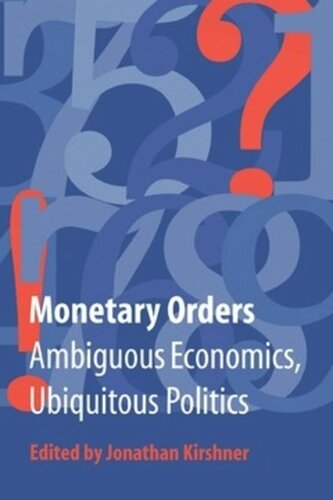

Most ebook files are in PDF format, so you can easily read them using various software such as Foxit Reader or directly on the Google Chrome browser.
Some ebook files are released by publishers in other formats such as .awz, .mobi, .epub, .fb2, etc. You may need to install specific software to read these formats on mobile/PC, such as Calibre.
Please read the tutorial at this link: https://ebookbell.com/faq
We offer FREE conversion to the popular formats you request; however, this may take some time. Therefore, right after payment, please email us, and we will try to provide the service as quickly as possible.
For some exceptional file formats or broken links (if any), please refrain from opening any disputes. Instead, email us first, and we will try to assist within a maximum of 6 hours.
EbookBell Team

5.0
98 reviewsWherever there is money, there is money politics-a subject demanding ever greater attention at a time when monetary policies lead and the real economy follows. A principal defining characteristic of the contemporary global economy, Jonathan Kirshner contends, is the rise and preeminence of monetary phenomena—international financial crises, Central Bank Independence and inflation fighting, the creation of the euro, and monetary reform in emerging economies, to name only a few. Moreover, unlike most debates in political economy (such as those regarding trade policy), which are generally recognized as political, monetary phenomena and macroeconomic policies are typically represented as expressly apolitical. In Monetary Orders, a distinguished group of scholars explores the inescapable political origins of choices about money. The essays in Monetary Orders each address a specific issue or puzzle relating to money and its management. Their authors focus on markedly disparate cases but share a common observation: for most policy choices about money, market forces and economic logic can rule out certain options, but are indeterminate in explaining why one policy rather than another will be chosen. Ultimately, political factors are essential to explain fundamental and consequential choices about money.